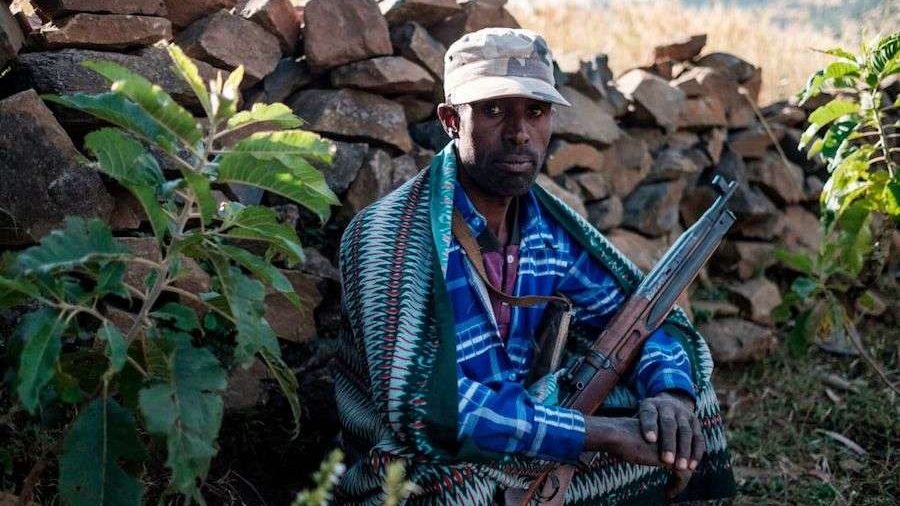A conflict between the Ethiopian government and the government of Ethiopia’s Tigray region must halt immediately, or it will destroy more lives and turn the country into a “failure,” Ethiopia’s Catholic bishops have said.
“We, the Catholic Bishops of Ethiopia urge both parties to immediately stop the armed conflict and start peaceful dialogue for the benefit of the people and resolve their differences in the spirit of understanding, mutual respect and trust,” Cardinal Berhaneyesus Souraphiel of Addis Ababa said in a Nov. 9 statement from the Catholic Bishops Conference of Ethiopia.
The bishops said they were saddened by the armed conflict and the resulting deaths, displacement of people, and destruction of property, Catholic News Service reported.
“Conflict between brotherly people does not help anyone. Instead, it destroys lives of innocent people and it is an act that will turn our country into a failure and (create) extreme poverty,” the Ethiopian bishops said. They regretted the failure of truce negotiation efforts by religious leaders, elders and others.
In the northern Ethiopian region of Tigray, the regional government is run by the Tigray People’s Liberation Front (TPLF). The group once dominated the ruling coalition of Ethiopia but felt marginalized by Prime Minister Abiy Ahmed’s political changes after he took office in 2018. He dissolved the ruling coalition and merged its ethnicity-based regional parties into a single party, the Prosperity Party, which the TPLF refused to join.
Tigrayan leaders have said they were unfairly targeted by political purges and allegations of corruption. They have argued that Abiy’s postponement of national elections due to coronavirus have ended his mandate as a legitimate leader, BBC News reports.
On Nov. 4 Abiy announced a military offensive in response to an alleged attack on a military base in Mekelle, the capital of Tigray. The prime minister aims to arrest the regional government heads and to destroy its military arsenal.
Several hundred people have been killed on both sides of the conflict. Each side blames the other for the conflict, and it is difficult to confirm their claims, the Associated Press has said. Tigray’s communications have been almost completely cut off.
Over 200,000 Ethiopian refugees are expected to cross into Sudan, and thousands have already entered Sudan’s border provinces. The United Nations and Sudanese partners are preparing to aid 20,000 refugees.
Prime Minister Abiy, who won the Nobel Peace Prize in 2019 for resolving a border conflict with Eritrea, rejected pleas for dialogue. The U.K. and the African Union, among others, have advocated for de-escalation.
Abiy has said there would be no negotiations until the end of the “law enforcement operation.”
In September the TPLF held elections despite a nationwide ban on them. The Ethiopian government declared the elections illegal. An emergency session of the national parliament last week voted to dissolve the Tigrayan government, charging that it had “violated the constitution and endangered the constitutional system.”
Tigray has had poor relations with Eritrea, which is on the region's northern border. Tigrayan leader Debretsion Gebremichael has accused Eritrea of taking military action in support of the Ethiopian government, but he gave no proof, and Eritrea's government rejected the claim, Reuters reports.
Tigray shares a western border with Sudan, which has put more than 6,000 troops on the border.
The conflict has prompted fears of regional destabilization as well as instability, and even civil war, within Ethiopia. Ethiopia has some 110 million people, the second-most populous country in Africa. It has many ethnic groups and other regions that desire more autonomy.

